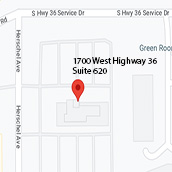Determining Fault in a Personal Injury Case
Personal Injury Lawyer
If you are the plaintiff in a personal injury case, then you probably know that your case hinges upon proving that the defendant was at fault for causing your injury. Essentially, you are trying to prove that he or she acted negligently. If someone’s actions are negligent, then they are responsible for compensating anyone who suffers damages that result from those actions. Legal negligence has four components which must each be proven independently. However, proving negligence legally is a complicated thing. You should always hire an attorney to argue your case for you, as the average person is simply not capable of presenting a capable legal argument without training.
- Duty
The legal definition of negligence begins at a point that may surprise you. The first component is duty, which refers to the social obligation someone may or may not have. If an average person would expect a certain kind of behavior, then there is a duty to act that way. For example, all drivers have a duty to follow the rules of the road, provide insurance information after an accident, and never drive while intoxicated. Before negligence can be proven, it must be proven that the defendant had a particular duty.
- Breach
The second component is tied closely to the first. The second thing that must be proven is that the defendant failed to meet the duty previously established. This failure to fulfill a particular duty is called a breach of duty.
- Causation
Proving that the defendant breached their duty does not necessarily mean he or she acted negligently. For an action to be negligent, a breach of duty must result in someone else suffering damages. In personal injury cases, this damage is the injury itself. Therefore, the third component of legal negligence is causation. Essentially, the breach of duty must be the cause of the injury. If the injury would have happened regardless, the breach of duty is simply coincidental and not negligent.
- Damage
Finally, it must be shown that the breach of duty caused some kind of significant damage. If the injury is very minor, then you may not be able to win your case. Additionally, it must be proven that your damage is real.
Each of these four components builds upon the previous one. In this way, a legal argument is constructed little by little. If any one component is not properly proven, the whole argument is invalid. This is a big reason why you should trust a Memphis personal injury lawyer to represent you.
Thanks to Patterson Bray, for their insight into personal injury claims and determining fault.






